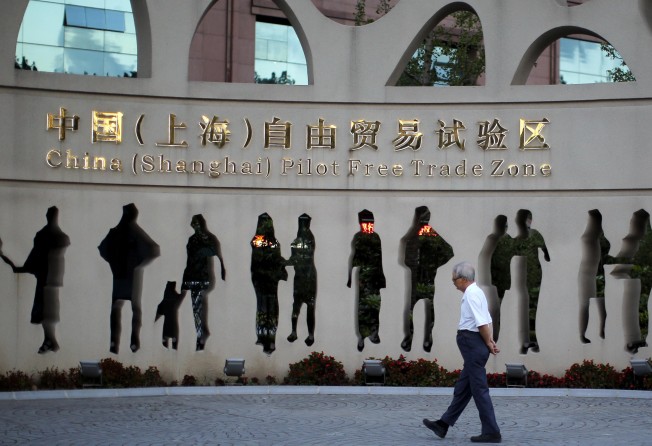Why China's yuan deserves SDR recognition by the IMF
China's pursuit of a more sustainable growth model through serious reforms indicates its political will to deliver greater convertibility

Since Deng Xiaoping embarked on market reforms in the late 1970s, China has evolved from a poor, closed economy to become first the factory of the world and now a country on the cusp of significant economic opening.
This begs the question of how its currency will integrate into the global financial system.
It is a matter of when, not if, the yuan will be included in the International Monetary Fund's special drawing rights currency basket. With the five-yearly SDR review due later this year, now is a good time.
The yuan's inclusion would cement its rising reserve-currency status and accelerate investment in the currency. To qualify, it must be "freely usable", although not necessarily "fully convertible".
The Japanese yen became fully convertible only in 1980 - two years after the IMF determined it to be freely usable.
Sceptics may focus on how far China still has to travel, but the IMF should instead look at how far it has come.
The yuan is the world's fifth most-used payment currency, according to Swift, and 27 per cent of China's total goods trade is now settled in yuan.
Onshore, the Shanghai free-trade zone spearheads pilot tests for capital account liberalisation. Offshore, centres led by Hong Kong, Singapore and London now provide a wide range of yuan hedging and investment products, plus access to raise capital in the "dim sum" bond market worth 750 billion yuan (HK$948 billion).
Foreign investors are enjoying increasing access to Chinese stock and bond markets, and the yuan foreign exchange market has become deeper and more liquid.
Also, as more than 60 central banks globally have invested in yuan assets - with estimated holdings of over US$100 billion - the yuan is already a recognised currency in the eyes of many reserve managers. According to the People's Bank of China, the yuan now ranks seventh in reserve holdings globally.
All this suggests the yuan broadly meets the technical requirements based on the current freely usable SDR criterion.
It should also count in its favour that China is beginning to exert its geopolitical influence on the global stage, starting with its role in establishing the Asian Infrastructure Investment Bank.
Does that mean China can't do more?
Of course not. For one, Beijing still imposes foreign exchange controls on personal capital transactions. And foreign investors still don't have sufficient access to domestic capital markets.
But it would be a mistake to doubt the political will to deliver greater convertibility.
PBOC governor Zhou Xiaochuan recently vowed to launch a series of reforms this year including pilots to allow individuals to invest directly overseas.
Zhou said China aims for "managed capital account convertibility" rather than the traditional concept of "full" or "free" convertibility. This means that Beijing will retain capital account management in some areas, including external debt and short-term speculative capital flows.
While critics may pounce on this as showing lack of commitment, I believe it is a positive. China is pursuing a more sustainable growth model through serious reforms. Doing so while liberalising from a closed to open economy is a tough balancing act and potentially destabilising if not handled with care.
A steady, managed emergence into the global economy is good not only for China but - given the country's size and global influence - for the rest of the world.
As we await the final outcome of the SDR review, the IMF should be aware of the risk that, without legitimacy in the form of SDR inclusion, the global expansion of yuan usage could become increasingly straitjacketed.
The role of the IMF is not just to foster currency and monetary development, but also to secure financial stability and promote sustainable economic growth.
Right now, the IMF is instrumental to China's further opening - a potential catalyst for its future liberalisation and next phase of economic and financial development.
The yuan deserves SDR recognition, and the world deserves a sustainable Chinese economy and the continued emergence of its currency.
Benjamin Hung is Greater China chief executive of Standard Chartered and a member of the Financial Services Development Council